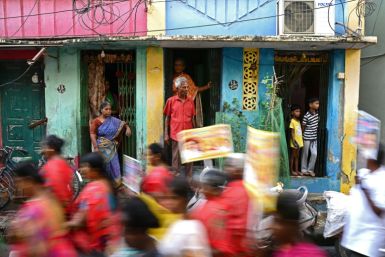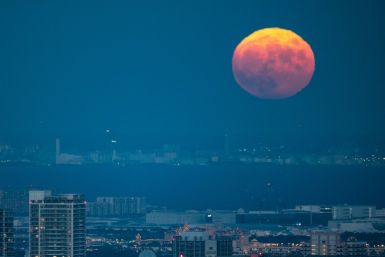Bolivian President Evo Morales' Plane Diverted To Austria; Official Denies Edward Snowden Aboard
Bolivia's foreign minister said Tuesday evening the plane bringing President Evo Morales home from Russia was rerouted to Austria after France and Portugal refused to let it to cross their airspace because of suspicions that NSA leaker Edward Snowden was on board, the AP reports.
David Choquehuanca, who was home in La Paz while the president was in Europe, denied that Snowden was on the plane, a Bolivian Air Force French-built Dassault Falcon 900EX tri-jet. Austrian officials confirmed that Snowden did not land in Vienna with Morales.
"They say it was due to technical issues, but after getting explanations from some authorities we found that there appeared to be some unfounded suspicions that Mr. Snowden was on the plane," he said, according to Reuters. "We don't know who invented this lie, but we want to denounce to the international community this injustice with the plane of President Evo Morales."
Choquehuanca said in a statement that after France and Portugal canceled authorization for the flight, Spain's government allowed the plane to be refueled in its territory. From there the plane flew on to Vienna. He said the decision by France and Portugal "put at risk the life of the president."
Later, Bolivian Defense Minister Ruben Saavedra said the U.S. State Department may have been behind the decisions to not allow Morales' plane to land in Portugal or fly over French airspace.
"We have the suspicion that they (the two European governments) were used by a foreign power, in this case the United States, as a way of intimidating the Bolivian state and President Evo Morales," he said.
Morales traveled to Russia over the weekend and from Moscow said he would consider an asylum request from Snowden.
Austrian Foreign Ministry spokesman Alexander Schallenberg later told the AP that Snowden is not with Morales and that the Bolivian president is spending the night at a Vienna hotel.
Later, the BBC reported that Morales was at the airport in Vienna discussing his return route to Bolivia early on Wednesday.
Earlier in the day, he threw a possible lifeline to the American surveillance whistle-blower, telling Russian television he would consider granting Snowden political asylum to escape from what it called the espionage network of the U.S. "empire," the Guardian reported.
As other options began to fade for Snowden, trapped in the transit zone of a Moscow airport, Morales said his country was keen to "shield the denounced."
Speaking in Moscow, Morales said Bolivia had not received a formal application for asylum from Snowden yet, but hinted it would consider any request favorably.
"If there were a request, of course we would be willing to debate and consider the idea," Morales told RT Actualidad, the Spanish-language service of Russian broadcaster RT.
"I know that the empires have an espionage network and are against the so-called developing countries. And in particular, against those which are rich in natural resources," he added.
One of Snowden's best remaining chances of finding refuge may hinge on Venezuelan President Nicolas Maduro, who was also in Russia on Tuesday, the AP reports.
Maduro told Russian reporters his country has not received an application for asylum from Snowden and dodged the question of whether he would take him with him when he left. But he also defended the former NSA systems analyst.
"Who must protect Snowden? This is the question. This young man of 29 was brave enough to say that we need to protect the world from the American imperial elite, so who should protect him?" Maduro said in response to a question from journalists covering a ceremony to rename a Moscow street after his predecessor Hugo Chavez. "All of mankind, people all over the world must protect him."
"Why are they persecuting him? What has he done? Did he launch a missile and kill someone? Did he rig a bomb and kill someone? No. He is preventing war," he told Reuters.
Maduro was scheduled to spend Wednesday in neighboring Belarus before returning to Venezuela.
© Copyright IBTimes 2024. All rights reserved.











